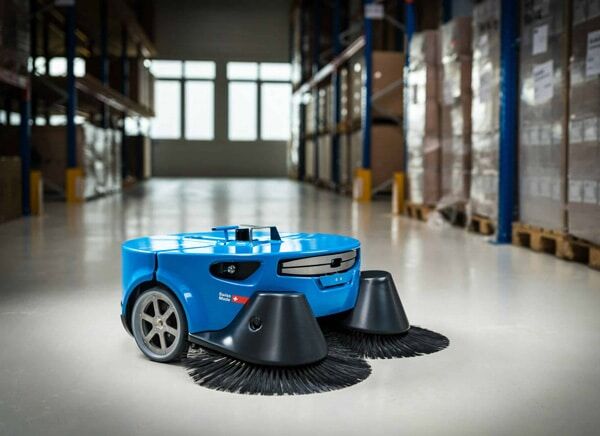Robotic cleaning technology has reached new heights in 2025, with advanced navigation systems, AI-powered cleaning strategies, and multi-surface capabilities. Next-generation robot vacuums and mops are transforming home maintenance with improved efficiency, smarter mapping, and seamless integration with smart home ecosystems.
Revolutionary Navigation Systems
LiDAR and Visual SLAM Technology
- Precision Mapping: 360-degree laser scanning creating detailed floor plans
- Real-Time Navigation: Dynamic obstacle avoidance and path optimization
- Multi-Floor Memory: Storing maps for different levels of the home
- Room Recognition: Identifying and naming spaces automatically
Advanced Sensor Integration
- Cliff Detection: Preventing falls down stairs and ledges
- Carpet Recognition: Adjusting suction for different floor surfaces
- Furniture Detection: Gentle cleaning around delicate items
- Pet Recognition: Avoiding waste and adjusting cleaning patterns
AI-Powered Cleaning Intelligence
Machine Learning Algorithms
- Traffic Pattern Analysis: Learning high-use areas needing more attention
- Cleaning Schedule Optimization: Adapting to household routines
- Surface Recognition: Identifying carpet, hardwood, and tile
- Dirt Detection: Focusing on areas with heavier debris
Predictive Maintenance
- Filter Monitoring: Tracking filter life and replacement needs
- Brush Wear Detection: Identifying when brushes need replacement
- Battery Health: Optimizing charging cycles for longevity
- Performance Analytics: Monitoring cleaning effectiveness over time
"Today's robotic cleaners aren't just automated tools—they're intelligent cleaning partners that learn, adapt, and improve with every cleaning cycle."
Multi-Surface Cleaning Capabilities
Hybrid Vacuum-Mop Systems
- Dual Function: Vacuuming and mopping in a single pass
- Water Flow Control: Adjusting moisture levels for different floors
- Automatic Pad Cleaning: Self-cleaning mop attachments
- Surface Detection: Switching between vacuum and mop modes
Specialized Cleaning Modes
- Deep Clean Mode: Multiple passes for thorough cleaning
- Pet Hair Mode: Enhanced suction for pet owners
- Allergen Mode: HEPA filtration for sensitive households
- Quick Clean: Rapid cleaning for high-traffic areas
Self-Maintenance Features
Auto-Empty Stations
- Bagless Systems: Cyclone technology in base stations
- Large Capacity: 30-60 day capacity before manual emptying
- HEPA Filtration: Base station air purification
- Sealed Systems: Preventing dust escape during emptying
Self-Washing Stations
- Mop Pad Washing: Automatic cleaning of mopping attachments
- Hot Water Cleaning: Heated water for better stain removal
- Drying Cycles: Air drying to prevent mold and odors
- Tank Management: Fresh water and dirty water separation
Smart Home Integration
Voice Assistant Compatibility
- Alexa Integration: "Ask Roomba to clean the kitchen"
- Google Assistant: Natural language cleaning commands
- Siri Support: HomeKit integration for Apple users
- Custom Commands: Personalized cleaning routines
Home Automation Triggers
- Schedule Integration: Starting when no one is home
- Motion Sensors: Cleaning after rooms are vacated
- Door Sensors: Beginning cleaning when family leaves
- Smart Locks: Coordinated with home security systems
Advanced Power Management
Battery Technology
- Lithium-Ion Advances: 3-5 hour cleaning times
- Fast Charging: Quick top-offs for extended cleaning
- Smart Charging: Optimizing battery health and longevity
- Resume Technology: Continuing cleaning after recharging
Energy Efficiency
- Variable Suction: Adjusting power based on surface needs
- Eco Modes: Extended cleaning times with lower power
- Sleep Mode: Minimal power consumption when docked
- Power Monitoring: Tracking energy usage over time
Specialized Cleaning Solutions
Pet-Specific Features
- Pet Hair Extraction: Specialized brushes preventing tangles
- Waste Avoidance: Cameras identifying and avoiding pet accidents
- Allergen Filtration: Capturing pet dander and allergens
- Quiet Operation: Reduced noise to avoid frightening pets
Large Home Solutions
- Extended Runtime: Cleaning 3,000+ square foot homes
- Multi-Robot Coordination: Multiple units working together
- Zone Management: Different robots for different areas
- Charging Station Networks: Multiple docking points
Mobile App Control
Comprehensive Management
- Real-Time Maps: Live tracking of cleaning progress
- Custom Zones: Creating specific cleaning areas
- No-Go Zones: Marking areas to avoid
- Schedule Management: Complex timing and frequency settings
Advanced Analytics
- Cleaning Reports: Detailed analysis of each cleaning session
- Usage Statistics: Time, area, and frequency tracking
- Maintenance Alerts: Proactive component replacement reminders
- Performance Trends: Long-term cleaning effectiveness analysis
Security and Privacy
Data Protection
- Local Processing: Map data stored on device, not cloud
- Encrypted Communication: Secure app and robot communication
- Camera Privacy: Optional image capture with user control
- Anonymous Analytics: Performance data without personal identification
Physical Security
- Theft Protection: Alarm systems when robot is moved unexpectedly
- Access Control: PIN protection for sensitive functions
- Guest Mode: Limited functionality for temporary users
- Remote Disable: Shutting down robot if stolen
Future Technology Trends
Emerging Capabilities
- UV Sanitization: Germicidal cleaning for health safety
- Air Quality Monitoring: Detecting and reporting indoor pollution
- Object Recognition: Identifying and avoiding valuable items
- Multi-Story Navigation: Automatic floor transitions
Advanced AI Integration
- Natural Language Processing: Conversational cleaning instructions
- Predictive Cleaning: Anticipating cleaning needs
- Emotional Intelligence: Adapting to household moods and activities
- Continuous Learning: Improving performance through cloud-based updates
Choosing the Right Robotic Cleaner
Home Assessment
- Floor Types: Carpet, hardwood, tile coverage assessment
- Layout Complexity: Open floor plans vs. many rooms
- Pet Ownership: Hair shedding and waste considerations
- Family Schedule: Cleaning time availability and noise tolerance
Feature Prioritization
- Essential Features: Navigation, battery life, and emptying frequency
- Convenience Features: Auto-empty, self-wash, and app control
- Advanced Features: Multi-surface cleaning and smart home integration
- Budget Considerations: Balancing features with cost
Robotic cleaning technology in 2025 represents a quantum leap in home automation, offering unprecedented intelligence, efficiency, and convenience. These advanced systems don't just clean—they learn, adapt, and integrate seamlessly into smart homes. As AI continues advancing and sensors become more sophisticated, robotic cleaners will become even more capable partners in maintaining clean, healthy homes with minimal human intervention.
